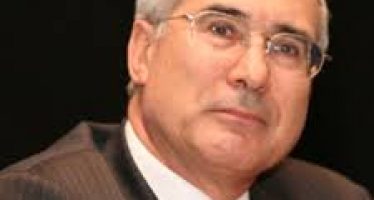Boosting Trade Competitiveness Key for Sustained Growth in Malaysia

Kuala Lumpur
Malaysia’s economy is expected to grow by 5.4% in 2014 and 4.6% in 2015, according to a new World Bank report. Exports rose in the previous two quarters and lifted Malaysia’s economic growth. The Malaysia Economic Monitor, launched today, notes that trade is critical to Malaysia’s transformation into a high income economy.
“Trade can improve the living standards for Malaysians and their families by generating jobs and providing them with a wider, more affordable range of goods and services,” saysFrederico Gil Sander, World Bank Senior Economist for Malaysia, “More than half of goods and services produced in Malaysia are ultimately consumed abroad, highlighting the benefits of boosting trade competitiveness.”
Malaysia needs to attract and create more firms that make and export knowledge-based products (such as medical software and health services). To achieve this, it can bridge the mismatch between the skills of Malaysian graduates and the skills that the global market needs. Universities and Malaysian firms can drive innovation and growth by working together to improve student skills in communication, problem-solving, and information technologies.
“More than half of goods and services produced in Malaysia are ultimately consumed abroad, highlighting the benefits of boosting trade competitiveness.”
“As chair of the ASEAN in 2015, Malaysia can encourage member countries to adopt trade policies that will benefit entrepreneurs, workers, and consumers,” says Ulrich Zachau, World Bank Country Director for Malaysia, “ For example, Malaysia can take the lead and seek commitments from ASEAN countries to make regulations more trade friendly and transparent, and to open up the professions–so that qualified lawyers and engineers can work freely across the entire ASEAN region,”
The Malaysia Economic Monitor series provides an analytical perspective on the policy challenges facing Malaysia as it grows into a high-income economy. The series also represents an effort to reach out to a broad audience, including policymakers, private sector leaders, market participants, civil society, and academia.
You may have an interest in also reading…
World Bank Group Increased Support for Reforms to Accelerate Economic Growth
Annette Dixon, new Vice President of World Bank Group’s South Asia Region made an introductory visit to Pakistan from April
The World Bank: Accelerating Africa’s Aspirations
As Sub-Saharan Africa develops rapidly, it is estimated that the continent will need millions of engineers just to reach a
Harbingers of Climate Doom Gear Up Over Storm
Extreme weather events such as prolonged heat waves in Argentina, killer typhoons in the Pacific and violent storms lashing the
















































































